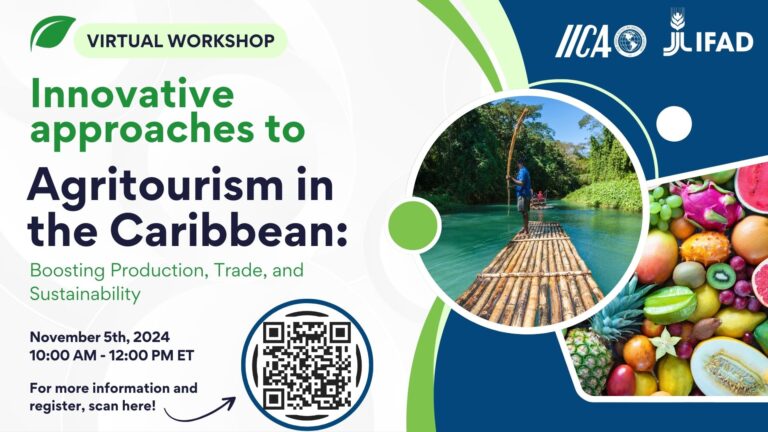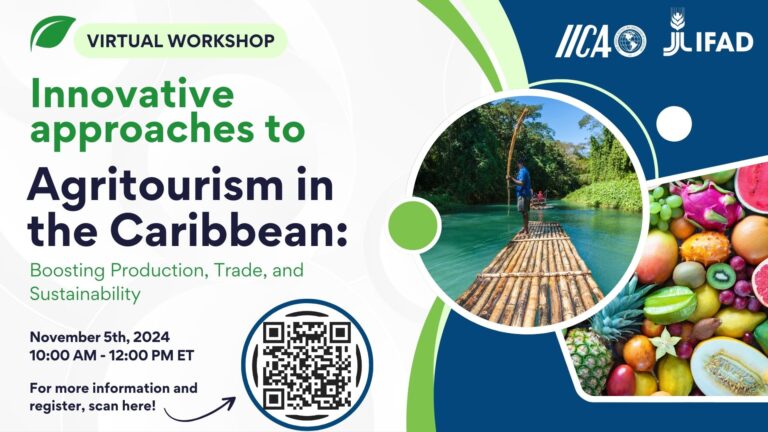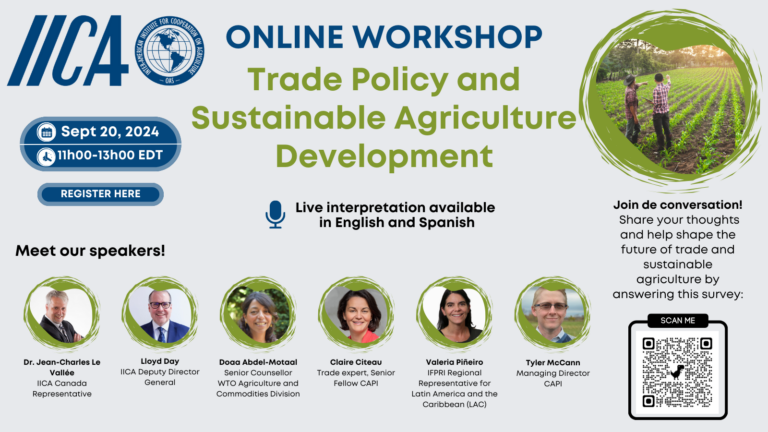Objectives
- Exchange information and experiences on the state of the art in soil degradation management, technological advances for integrated soil management and their impact on agricultural productivity, ecosystem services, and adaptation to and mitigation of climate change.
- Promote research and cooperation work agendas in relation to integrated soil management.
- Provide a forum for discussing public policies on integrated soil management in LAC.
Organizer
- Inter-American Institute for Cooperation on Agriculture (IICA)
Methodology
The series of virtual forums provides a weekly opportunity for increasing knowledge and reflecting on integrated soil management within the Latin American context. The forums will be carried out over six weeks; the first four weeks they will be held in Spanish, and the rest of the weeks they will be held in English for Caribbean countries in particular.
The forums will begin by addressing the current context and state of the art, followed by the presentation of case studies or technologies that are turning out to be effective, and reflections on decision-making policies, strategies and tools that contribute to integrated soil management, with the goal of preventing degradation processes or helping land to recuperate from them, and preserving natural resources and biodiversity.
Each forum will last two hours and will involve the participation of two or three experts on the topics being addressed, who will give 20-minute presentations followed by a final session for questions and discussion. Questions may be asked virtually or in person, as appropriate.
Background
In 2050, four fifths of the food needed to feed over nine billion people will come from existing land as a result of the intensification of agricultural production. It is predicted that a large percentage of this demand for food will be satisfied by countries in the Latin American region.
However, the high vulnerability of many countries in Latin America and the Caribbean (LAC), largely due to climate variability and climate change, is one of the greatest threats to agricultural production, food and nutritional security, as well as sustainable development.
LAC countries are exposed to the effects of climate change. This includes changes in rainfall patterns, temperature increases, and extreme weather events that affect the productivity of the agricultural sector in the Americas.
Climate change constitutes one of the greatest triggers for soil degradation. The use of non-sustainable agricultural practices causes erosion, sedimentation in rivers, and loss of water sources, vegetation and biodiversity; these in turn worsen climatic impacts.
These impacts can be reduced through the use of integrated soil management (ISM) approaches that highlight the importance of the physical properties of soils and organic materials through the improvement of fertility, water availability and plant cover, and by optimizing nutrient cycles and conservation techniques.
In summary, focusing efforts on the topic of soil management is a pressing matter. Healthy soil produces healthy food, supports a healthy lifestyle and greater ecosystem services, and promotes a healthy environment.











